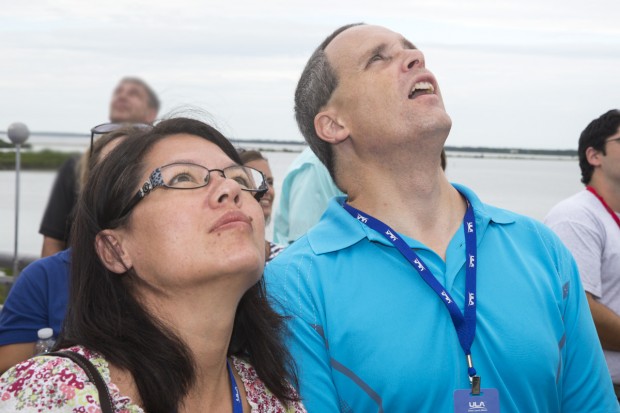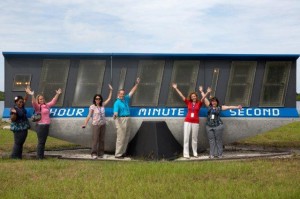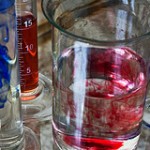What Happens When Science Teachers Go To A Rocket Launch
Lauren Case already knows what she’s going to say on the first day of school when her students ask what she did over summer break:
“I saw a rocket launch; it was awesome. You want to go too? Maybe you should become an engineer,” says Case, a 10th grade science teacher at South Fork High School in Stuart, Fla.
Case is one of six teachers who attended the July launch of the MUOS-2 satellite at Cape Canaveral as fellows with the National Science Teachers Association and Lockheed Martin.

courtesy Lockheed Martin
Lockheed Martin-NSTA Teacher Fellows Mary Maddox and Steve Kirsche watch the MUOS-2 satellite launch.
The fellowship is designed to take science teachers who have only been in the classroom for a couple of years and expose them to real-world applications of STEM—science, technology, engineering and math—so that, hopefully, they can bring the enthusiasm back to their students.
Governor Rick Scott has been pushing for more students to pursue careers in STEM. Jobs in those fields tend to pay better and, as of April, there were nearly 60,000 STEM job openings listed in Florida.

courtesy Lockheed Martin
Lockheed Martin-NSTA 2012-2013 Fellows--Lauren Case, Valerie Christou, Mary Maddox, Stephen Kirsche, Robin Barkes and Robin Hockey--at the NASA Press Site countdown clock.
As part of the experience, the teachers also toured construction of the Orion spacecraft. Right now, the hull of the capsule is in a clean room on NASA grounds. The teachers got to see engineers in gauzy, full-body protective suits climbing around the capsule—which will eventually be used on manned missions.
For Mary Maddox, a high school science teacher at Terry Parker Senior High School in Jacksonville, seeing the Orion up close got her thinking.
“There is this possibility, as statistically low as it probably is, that maybe one of our students could possibly take this spacecraft to Mars or to the moon,” says Maddox.
